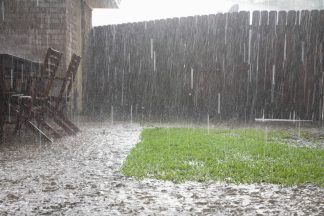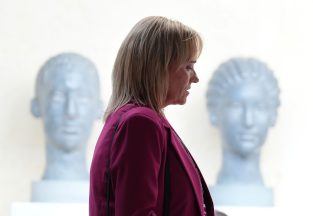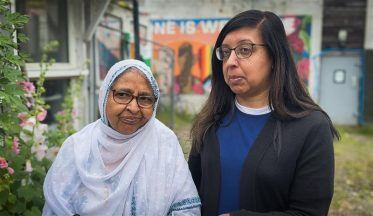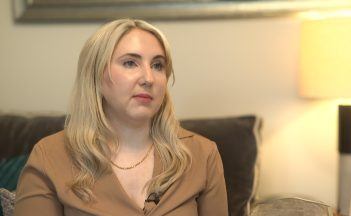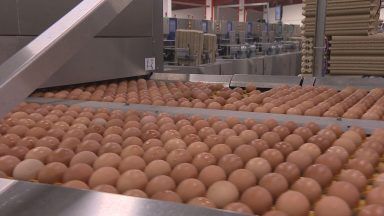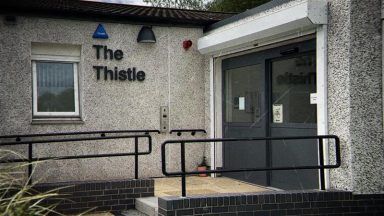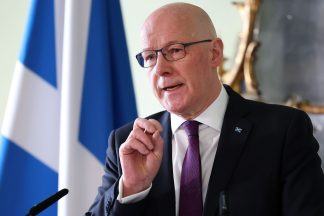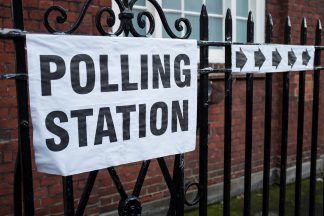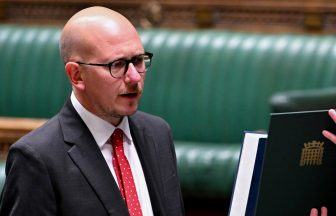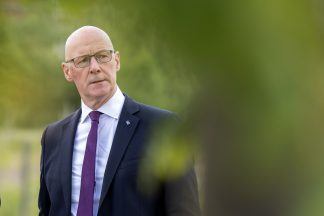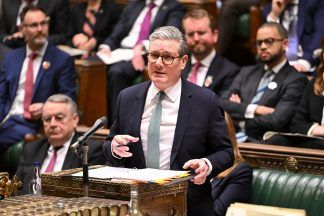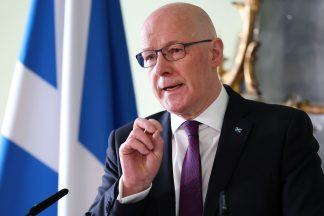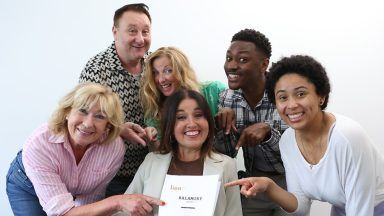More than half of Scots would vote for independence if there was a referendum, according to a new poll.
The YouGov survey found 51% of people in Scotland would vote to break away from the UK – the first time the pollster has shown a Yes win since 2015.
The poll, which questioned 1039 Scottish adults aged 16 and over, found around one in five (21%) of those who voted against independence in 2014 and for staying in the EU in 2016 would now back independence.
However, despite Nicola Sturgeon’s stated desire to hold a second independence vote this year, only 34% of Scots support a 2020 ballot, while 56% oppose it and 10% don’t know.
It comes ahead of an announcement by the First Minister on Friday where she is expected to outline the “next steps” as she attempts to secure indyref2 – despite the Prime Minister’s refusal to grant Holyrood the powers to hold one.
With the fieldwork for the survey carried out between January 22 and 27, it is the first major poll on Scotland’s constitutional question since last month’s general election, which gave Boris Johnson’s Conservatives a majority, allowing him to push his Brexit deal through parliament.
As a result, Britain is braced to formally leave the European Union at 11pm on Friday.
Patrick Harvie, co-leader of the pro-independence Scottish Greens, said: “The fact that this poll shift has happened as Scotland is taken out of the European Union is no coincidence.
“People in Scotland can see there is a route back to the European table through independence, and they can see that Green politicians and others across the continent would welcome an independent Scotland taking its place among other smaller progressive countries.”
On the timing of an independence vote, YouGov discovered more Scots (46%) oppose holding a referendum in 2021 even if the SNP win a majority in the Holyrood election compared to those who support it (41%) – while 13% don’t know.
However, 44% say there should be a new independence vote within the next five years, compared to 39% against the proposition and 17% who don’t know.
A total of 42% of Scots told YouGov they believe independence would make the country worse off, compared to just 35% who thought it would be better off.
‘The fundamental problem that flummoxed the Yes movement in 2014, that independence would damage the economy, still exists and could still set them back in indyref2.’
Chris Curtis, YouGov
On their personal finances, 36% think independence would have a negative impact, while 18% think they will be better off, around a quarter (26%) say it will make no difference and nearly one in five (19%) don’t know.
First Minister Nicola Sturgeon remains relatively popular, and the most trusted leader in Scotland, with 46% saying they trust statements and claims she makes on Scotland’s future, cancelled out exactly by the 46% who do not trust her.
In contrast, current Scottish Conservative and Scottish Labour leaders Jackson Carlaw and Richard Leonard register 8% and 6% trust respectively, with 37% and 38% of Scots mistrusting them.
For both men, 55% of Scots say they do not know them well enough to give an opinion.
Prime Minister Boris Johnson is trusted by just 18% of people in Scotland, while over seven in ten (71%) do not.
Alistair Darling, who led the Better Together campaign ahead of the 2014 referendum, is trusted by only 16%, compared to 48% who do not trust him.
The most popular unionist politician continues to be Ruth Davidson, who resigned as Scottish Conservative leader last summer.
A total of 31% say they trust the statements she makes, as opposed to 49% who don’t trust her.
Chris Curtis, YouGov’s political research manager said: “These are concerning times for unionists both north and south of the border with Yes gaining considerable ground on No since 2014.
“But ultimately, whether a referendum happens won’t be decided by polling, but the political manoeuvres of the Scottish and British governments.”
But he added: “The fundamental problem that flummoxed the Yes movement in 2014, that independence would damage the economy, still exists and could still set them back in indyref2.”
Follow STV News on WhatsApp
Scan the QR code on your mobile device for all the latest news from around the country



